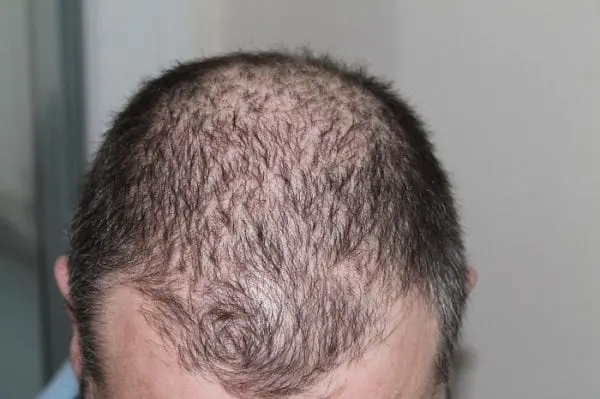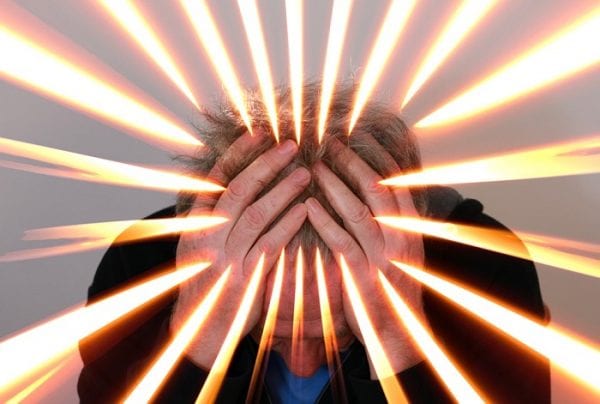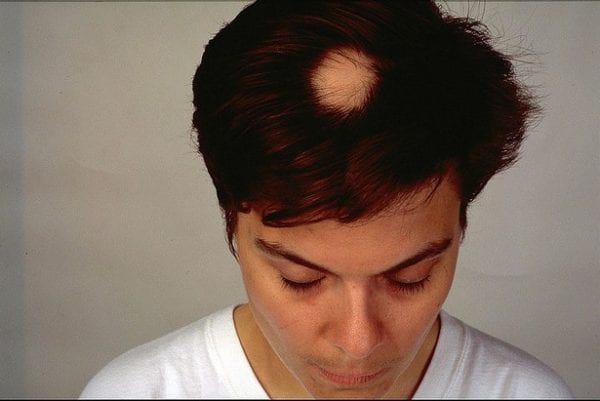Hair Today Gone Tomorrow…Vitamin D and Male Pattern Baldness

Human beings are primates. We have more in common with chimpanzees, genetically speaking than any other animal. And like all primates, we grow fur. Only we don’t call it fur, we call it hair. Men and women both grow hair all over their bodies, to varying degrees, but the hair we care about the most is the hair on our heads. Keep reading about the effects of Vitamin D and Male Pattern Baldness.
Men especially have long been concerned with their hair. Although traditionally, women get a lot of the attention for hair care needs, simply because women tend to have more hair to tend to, men also worry about whether their follicles are performing up to snuff. Specifically, men worry about hair loss, which is the state when hair follicles stop producing hair. Hair falls out fairly regularly as a part of the recycling process our whole bodies go through, but when the follicles stop making new hair to replace their fallen comrades, receding hairlines and even baldness are the results. And while women can and do also suffer from significant hair loss under certain circumstances, male pattern baldness, also known as androgenetic alopecia, is the type that garners most of the attention.
Since hair loss is such a concern, many men seek all kinds of potions, lotions, and other tricks to help save their hair from washing down the shower drain. While there are many external solutions that can be applied to the problem, including physical interventions like hairpieces for men or transplants, where hair follicles from other parts of the body (like the buttocks) are transplanted onto the scalp to try and create new hair growth, it remains true that the best way to affect your hair growth or lack thereof, is internally. This means diet and supplements, the vitamins and nutrients that you’re feeding your body.

So what’s the deal with Vitamin D?
According to Oxford Biolabs research, Vitamin D is one of the essential nutrients that your body needs to function. Vitamin D is one of the few nutrients that we do not get from our food; instead, our body naturally synthesizes vitamin D with the help of sunlight (yes, like a plant photosynthesizes for food). This form of vitamin D is called D3, or cholecalciferol. D2, or ergocalciferol, is the type of vitamin D found in food. Foods high in vitamin D2 include salmon, milk, eggs (and especially egg yolks), and raw shiitake mushrooms.
Why is Vitamin D so important for hair?
Vitamin D helps promote general health in a number of ways, and it may help with hair growth specifically in the following ways;
1. Reduces stress

Some studies have shown that taking a vitamin D supplement can help to reduce the levels of cortisol in your bloodstream. Cortisol is a key hormone which stems from stress and can adversely affect many processes in your body. Cortisol can accelerate the development of male pattern baldness by making hair grow in weak and brittle, contributing to breakage and overall hair loss.
2. Prevents Alopecia

Vitamin D is a hormone, like testosterone or estrogen, and like these hormones, vitamin D plays a part throughout your body, affecting many different systems and overall health. Scientific studies have shown that vitamin D plays a part in autoimmune disorders, like Alopecia areata, or AA. With this type of hair loss, the body begins attacking the hair follicles, causing what hair there is to fall out, and preventing the growth of new hair.
Taking vitamin D supplements can help treat autoimmune-based hair loss, which is often intractable and hard to manage medically.
3. Encourages Hair Cycling
As previously mentioned, vitamin D is an important part of your body’s regulatory system. Vitamin D, like many other hormones, help your body run its daily checklist of renewal and repair that keeps us going. Among these processes is what’s known as hair cycling, or the process of losing and regrowing hair. Although it may sound counter-intuitive to say vitamin D helps fight hair loss by causing your hair to fall out, the truth is that you need to lose and regrown your hair to maintain its overall health. Hair that doesn’t renew itself ends up brittle, dry, and prone to breakage.
4. Prevents Scalp Fibrosis
Vitamin D also helps prevent hair loss by working to combat something with the scary name of scalp fibrosis. A fibrosis of any kind is the build-up of excess collagen, when our bodies start producing and storing too much connective tissue in a particular area, which can gum up the works and create all sorts of health problems, depending on the location. With scalp fibrosis, hair follicles which suffer traumatic hair loss (a.k.a. hair being ripped out by the roots, which can happen with daily brushing or hair washing) begin to develop scar tissue around the follicle, which, when it progresses out of control, can actually begin to deprive the follicle of oxygen, which causes it to produce thinner and weaker hair before eventually becoming inactive.
Vitamin D has been shown to prevent the development of fibrosis in a number of ways, so a vitamin D supplement taken early enough can help prevent the onset of male pattern baldness.
5. Prevents Calcification
Your scalp has a large and very healthy blood supply, as anyone who has gotten a scalp wound can tell you. However, the scalp itself is a relatively thin layer of flesh over bone, and the blood supply, while robust, can be negatively affected when the bone is affected. One way you can see this is with the formation of white streaks in a hair over the site of a serious head injury, as decreased blood flow can affect the development of the hair.
Another way this happens is with calcification. When the body begins to experience calcification, there is an excess buildup of bone growth in areas where all things considered, bones really shouldn’t be growing. When it happens in the joints of the body, it presents as arthritis. When it happens in your skull, it can present as hair loss, as the calcification can impair blood flow to the scalp just enough to discourage hair production
Some Final Thoughts
Male pattern baldness is a condition on the minds of millions of men worldwide. Unfortunately, because of genetics or other factors, sometimes losing your hair is just an inevitability. But sometimes, changing your diet, environment, or lifestyle can help mitigate, prevent, or even reverse premature balding, for men and women both. Hopefully, we’ve given all those losing the battle with their receding hairline a little hope that by bolstering your hair’s life cycle with a Vitamin D supplement, or just by adding more fish and eggs to your diet, you can once again reclaim the majestic mane of your youth.
Similar Posts:
- Understanding Female Hair Loss
- What Vitamins Help Kids Grow
- What to Do When Stress is Causing Excessive Hair Loss
- Common Nutrient Deficiencies that Affect Children
- 5 Ways Seeing a Therapist Can Improve Your Mental Health










Great article about Vitamin D & hair loss connection. The best way to get Vitamin D is to get sunlight (at noon – the highest point) and taking cod liver oil as a natural supplement source, based on my experience. Thanks for sharing!